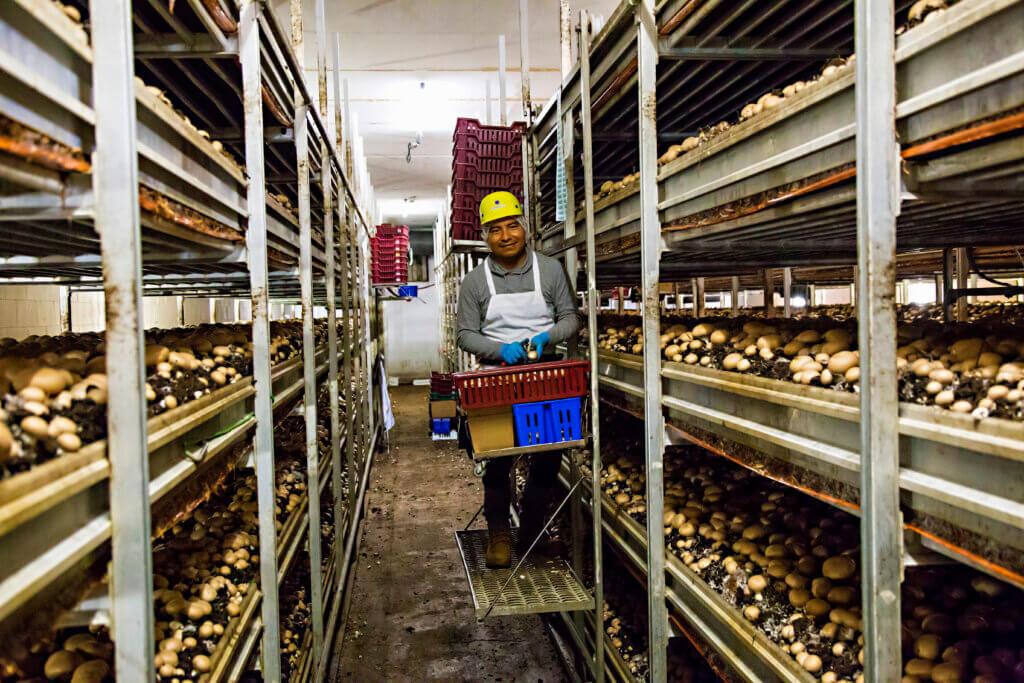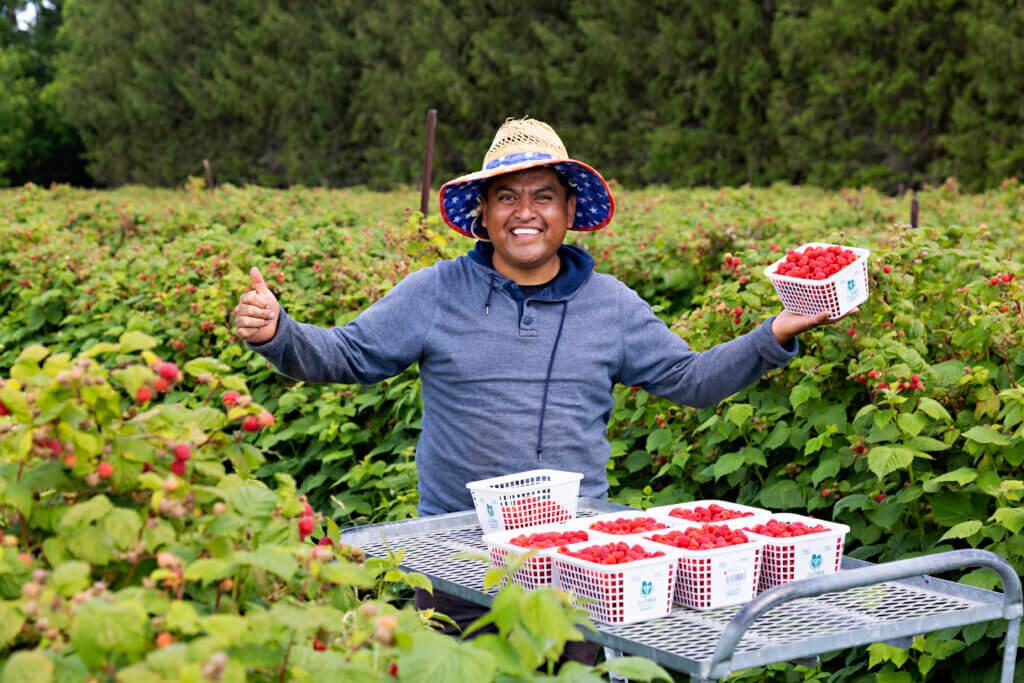Canadian Farms & Farmers
The Essential Work of Farming
The essential work of farming
Labour is a big part of the economics of producing food, and just as with other businesses, farmers often need to hire extra people outside of their families to help get everything done. Technology and equipment are helping to make some work easier, but people are still the most important part of producing food on the farm. Farm jobs aren’t like most other jobs. Cows have to be milked every day; pigs, poultry and other farm animals need to be fed; and crops have to be harvested. Fruits and vegetables in particular have to be harvested when they are ripe, or else they’ll lose their taste and quality, or at worst, just rot in the field or on the vine. That challenge means that farmers and farm employees don’t work a traditional eight-hour work day. Like other essential workers in our society, they’ll work evenings, nights, and weekends, in all kinds of weather conditions to make sure that their animals and crops are taken care of.

Worker shortage and Canada’s international farm workforce
As with many industries across the country, there is a severe shortage of workers on Canadian farms. Even though farmers try hard to fill their open farm jobs with local or Canadian workers, there simply aren’t enough available workers to do so. That’s why Canadian farmers also turn to seasonal and temporary foreign farm workers to help grow our food. Although there are international farm workers on many types of Canadian farms, it is fruit and vegetable growers in particular who rely on these workers to help them plant, manage, and harvest their crops. Because many fruits and vegetables bruise or damage easily, they need to be planted, picked, and cared for by hand. Automated equipment is starting to become available for jobs like picking strawberries, harvesting mushrooms, and weeding or scouting for pests and diseases, but it’s still quite expensive and not yet widely available.



